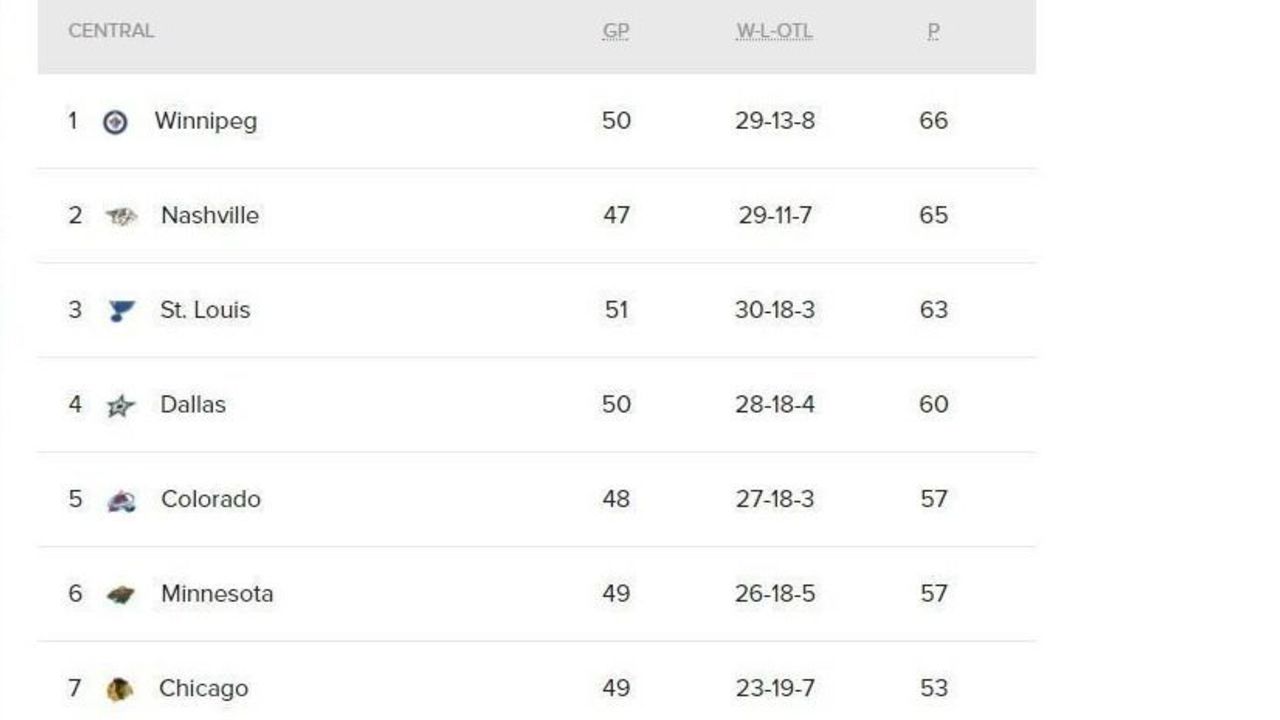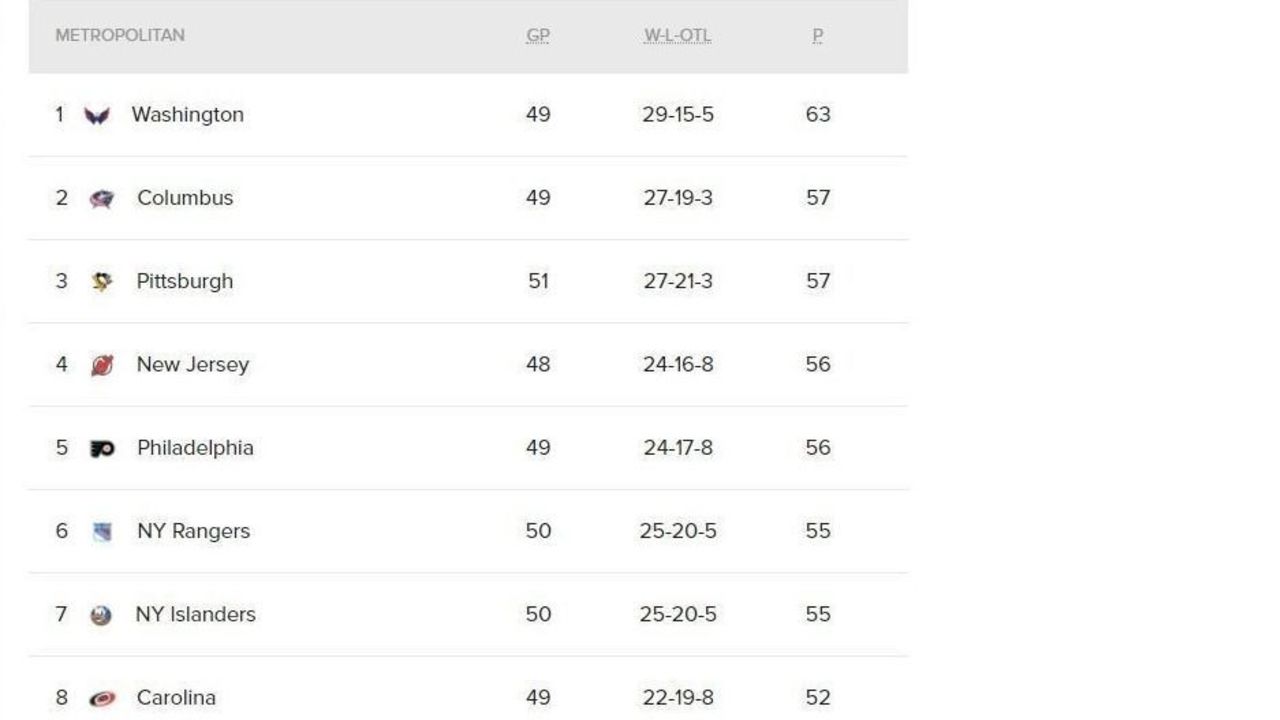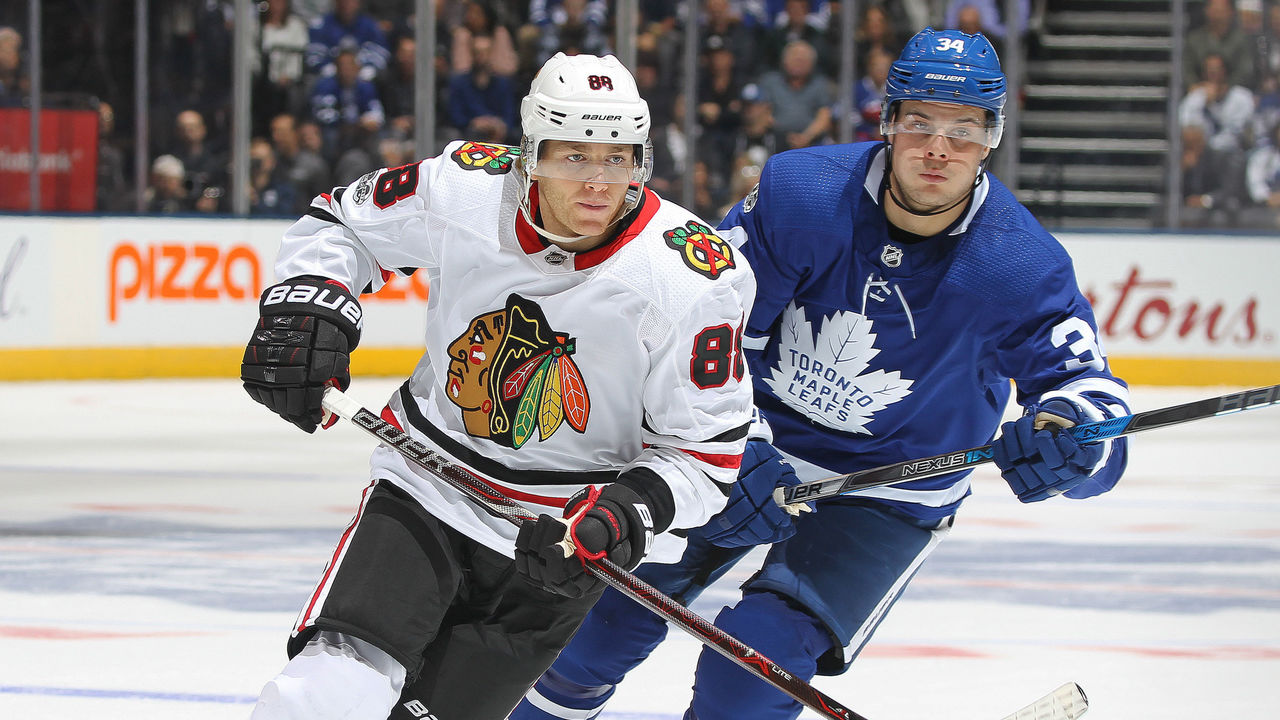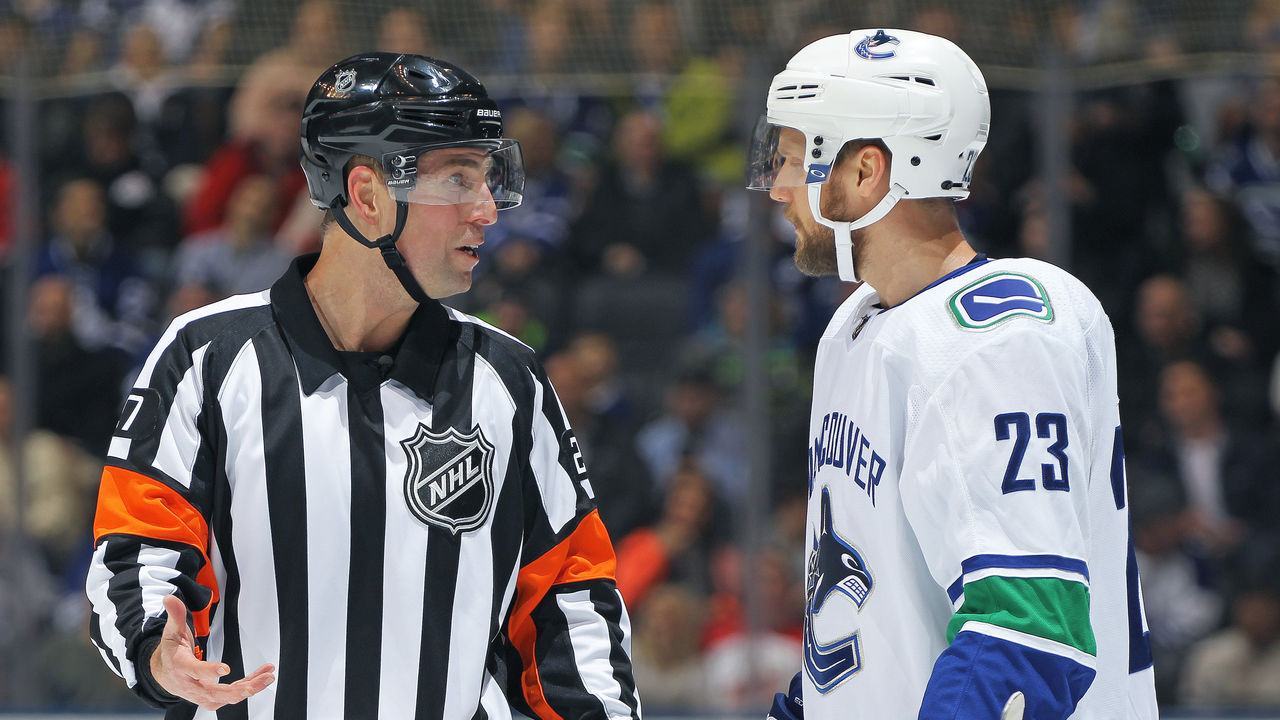All-Star break reflections: What we've learned from the NHL's 1st half
With the hockey world's elite set to descend on sunny Tampa Bay this weekend for the 63rd edition of the NHL All-Star Game, we've hit the unofficial halfway point of the 2017-18 campaign.
As each club hovers around the 50-games-played mark, we felt it was an opportune time to look back at some of the major storylines that have dominated the hockey consciousness over the past four months.
Insanely tight division races, expansion buzz, and an influx of talent from south of the border - you name it, the first half of the NHL season had it.
Let's take a look at what we've learned now that All-Star weekend is upon us:
Parity reigns supreme
Unlike some other North American professional sports leagues - cough, the NBA, cough - the NHL is increasingly becoming a multi-horse race, as more than a handful of teams currently have legitimate shots at taking home the Stanley Cup.
This trend is best exemplified in the Central and Metropolitan Divisions, where jockeying for playoff positioning is already in full swing:

The Jets, Predators, and Blues are three well-balanced clubs with bona fide Cup aspirations. However, don't sleep on the talent of the Stars or the experience and winning pedigree of the Blackhawks. With only 13 points separating first from seventh, this division could look a whole lot different when April rolls around.
As for the Metro, only 11 points separate first and last in a division also stacked with playoff-ready squads.

The two-time reigning champion Penguins, two-time reigning Presidents' Trophy-winning Capitals, and up-and-coming Blue Jackets all possess enough talent to go on deep postseason runs. Not to mention the high-scoring Islanders or Flyers, two more teams that could also do some damage come April.
Both of these divisions are stacked, highlighting the quickly developing trend of parity in both the Western and Eastern Conference. Don't be shocked when the Metro or Central produces the 2018 Stanley Cup champion.
Americans taking NHL by storm

Patrick Kane, Auston Matthews, and Jonathan Quick - American-born players who've become or are on the cusp of becoming superstars - have helped push the development of the game in non-traditional U.S. markets.
And because of it, there is a brand new wave of American rookies putting the NHL on notice this campaign. Entering the All-Star break four of the top-10 rookie scorers hail from the U.S.:
| Player (Position) | Team | Place | Goals | Assists |
|---|---|---|---|---|
| Brock Boeser (RW) | Canucks | 2nd | 24 | 19 |
| Clayton Keller (C) | Coyotes | 3rd | 14 | 22 |
| Alex DeBrincat (LW/RW) | Blackhawks | 6th | 17 | 15 |
| Kyle Connor (LW) | Jets | 9th | 15 | 14 |
Team USA Hockey is also booming at the international level, as the Americans have earned a medal in three consecutive world junior tournaments for the first time in the program's history.
Factor in that there are three USA Hockey products projected in the top 10 on the NHL Central Scouting's North American Skaters list for the 2018 NHL Draft (Brady Tkachuk, Quinn Hughes, Oliver Wahlstrom), and the invasion of American talent into the NHL is just getting started.
Coach's challenges ruining the game

Rules implemented to erase egregious offside and goalie interference calls have now evolved into a messy scenario that is quickly becoming the biggest talking point of the NHL.
Coach's challenges were enacted in hopes of getting the calls right and improving the overall quality of the game - but neither of those things have happened. Overturned goals, phantom goalie interference calls, and subsequent on-ice debates now dominate nightly hockey discussions and morning highlight shows.
This is the 33rd time this season where a "goal" was changed to "no goal" due to goaltender interference replay challenge
— Sportsnet Stats (@SNstats) January 26, 2018
But, at the end of the day, that isn't hockey. The fast-paced, hard-nosed game we all know and love is being hindered by the bureaucratic nonsense being instilled by the NHL.
Coaches don't like it. Fans hate it. And the quality of our beloved game is suffering because of it. For every time a goalie gets breathed on too heavily or a toe nail is over the blue line too soon, a game is being stopped for a painstakingly long amount of time.
General managers from around the league meet in Boca Raton, Fla., near the end of March. So here's hoping they come up with some sort of solution for a scenario that is quickly turning ugly.
Vegas, baby, Vegas!
Reflecting upon the unofficial first half could not be complete without mentioning the NHL's feel-good story of the season - the Vegas Golden Knights. Heck, the Golden Knights' expansion success could arguably be the feel-good story of the year across all North American pro sports leagues - and it's only January.
The Knights have been nothing short of sensational, breaking and setting records by an expansion franchise on a weekly basis.
The @GoldenKnights moved within three home wins of tying the NHL record for most by a team in its inaugural season. #NHLStats #CBJvsVGK pic.twitter.com/GKVhQkjQOU
— NHL Public Relations (@PR_NHL) January 24, 2018
A group of castoffs up and down the lineup, Gerard Gallant's men have built themselves a reputation as one of the hardest-working groups in the league that you better bring your "A" game against - especially on the strip.
Vegas has evolved into a home team that rarely loses, owning an immaculate record of 19-3-2 at T-Mobile Arena. It's a stat that could end up meaning a whole lot more if the club secures home-ice advantage for the playoffs.
The Golden Knights were projected to languish near the bottom of the league along with the likes of the Arizona Coyotes and Buffalo Sabres, but find themselves only three points adrift of the league-leading Lightning.
If there is one thing we've learned at the unofficial halfway point of the NHL campaign, it's that these Knights are very much for real.
(Photos courtesy: Getty Images)